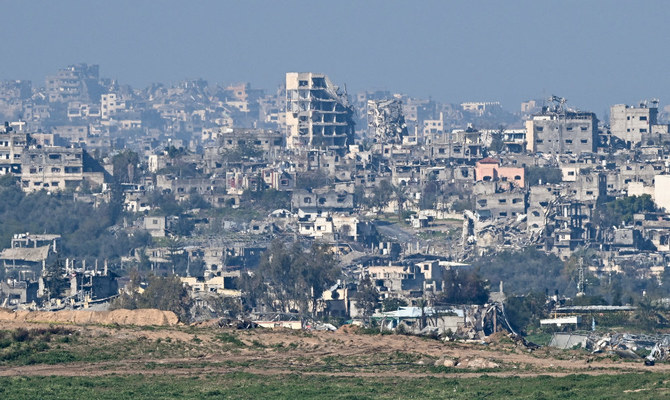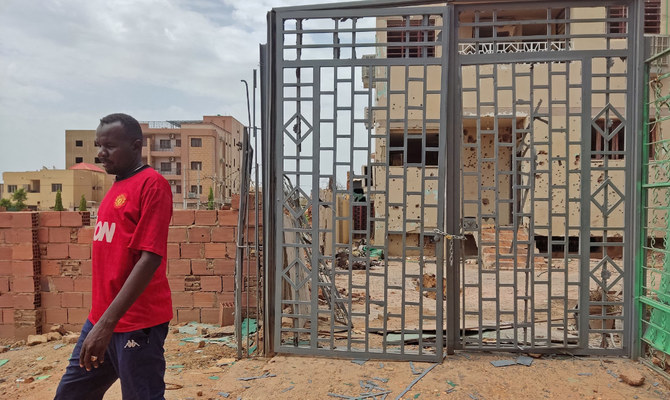
One of Africa’s youngest cabinet members to date is experiencing a baptism of fire.
Emma Theofelus, 23, was appointed Namibia’s information, communication and technology deputy minister a week after coronavirus hit Namibian shores. “I have literally been learning on the job so far,” she says.
Part of Theofelus’s role is to help lead communication to the public on preventative steps against the pandemic.
The former youth activist and justice ministry legal officer was having a quiet Saturday at home when the surprise call came from State House.
“I have been put in a position, regardless of what limitations I might have, to show up and do the best that I can do,” says Theofelus, who has had to learn very quickly how to navigate governance and political issues.
So far Namibia has seen “tremendous results” in giving real-time information about coronavirus to the media and the public while thwarting fake news, she says.
The appointment of younger leaders to high office is not entirely new in Africa. Thomas Sankara, for example, was 33 when he became president of Burkina Faso in 1983, and Abiy Ahmed was appointed Ethiopian prime minister last year at the age of 41.
But Theofelus is female, particularly young and representative of a continent where almost 60% of the population is under 25 years old, and where many presidents are among the oldest in the world.
In neighbouring Botswana, trade economist and consultant Bogolo Kenewendo was only 29 when she was appointed minister of investment, trade and industry. Like Theofelus, she didn’t rise through party political ranks but rather was appointed for the skills she could bring to the portfolio. This is especially unusual in southern Africa, where the credentials of the older liberation war heroes, born of struggle, often weigh more heavily than educational qualifications.
The same was true for Vera Daves da Sousa, 35, who became Angola’s finance minister last year. She is now tasked with reviving an oil-based economy suffering its worst recession since civil war ended in 2002.
In the past decade regional powerhouse South Africa has welcomed a larger number of younger cabinet members, too. For example, last year Ronald Lamola, 35 and a lawyer by training, was appointed justice minister. He rose to prominence a decade ago as part of the youth league of the governing African National Congress (ANC), where he was a close ally of Julius Malema, one of the most prominent young African politicians in recent times. They went their separate ways after Malema was expelled and formed his own party.
In the past month, Lamola has been part of a team consisting of mostly older ministers regulating South Africa’s tight coronavirus lockdown. In an unprecedented move by the president, another young colleague, communications minister Stella Ndabeni-Abrahams, was this week ordered to take leave for breaking these rules after she was pictured on social media having lunch at a friend’s house. Ndabeni-Abrahams, also from the ANC Youth League, was 33 when she became deputy minister in 2011.
It is in South Africa’s national legislature where the ages are truly dipping. The ANC’s Itumeleng Ntsube made history by becoming the youngest member of parliament in the country’s history after last year’s general elections. Ntsube, aged 20 at the time, was joined by at least four former student activists who made names for themselves a couple of years earlier in the #FeesMustFall protest movement.
Across the border in Zimbabwe, where Robert Mugabe clung to power until the age of 93, former Olympian swimmer Kirsty Coventry, then 35, was appointed minister of youth, sport, arts and recreation in 2018 by President Emmerson Mnangagwa. In the same year, Jessie Majome, from the opposition MDC Alliance, became the youngest parliamentarian aged 25.
Mugabe was also known for appointing young ministers, such as the firebrand youth leader Saviour Kasukuwere, who became deputy minister of youth development and employment creation in 2005 at the age of 35.
But having young leaders in government isn’t always good news. Instead of advancing youth interests, the appointment of young people as ministers in Zimbabwe “has been done over the years expediently and selectively”, says Harare-based Ibbo Mandaza, director of the Sapes Trust thinktank.
“It’s mostly done half-heartedly, because the older generation doesn’t want to give up power,” he says. “It’s also done as a way of co-opting and buying off the opposition.”
Mandaza says Coventry was appointed to woo white Zimbabweans. “There has not been a pattern of a systematic attempt for generational change in the region.”
Some heads of state have made young appointments to compete favourably with the opposition. For example, MDC leader Nelson Chamisa is 42, while in South Africa Julius Malema turns 39 this year.
The 2018 Gates Foundation report, which focused on youth population growth, said investment in the booming youth population could be good for African economies because if young people are healthy, educated and productive, they could “do the kind of innovative work that stimulates rapid growth”.
Theofelus says she genuinely believes President Hage Geingob has good intentions. “The first time I met him I was 17, and from what I’ve observed he’s always been surrounded with young people,” she says. “This was perhaps him walking the talk that young people are the leaders of tomorrow and we have to prepare them today.”
This does put a lot of pressure on her as a representative of young people, she says.
Melanie Verwoerd, a Cape Town-based political columnist who in 1994, aged 27, became an ANC MP and the youngest woman in South Africa’s first democratic parliament, says that while she believes it is important to have young public representatives, and while younger people have enormous energy, on a personal level age would have made her a better politician.
“As a young MP I had enormous energy, so I was working myself to the ground,” says Verwoerd. “But I was incredibly productive.”
Now, she says, “there is a sense and balance that comes with age and experience. I think I would be wiser, I would certainly be a lot less hot-headed.”
Being young in high office also brings frustrations. Aged 34 she became ambassador to Ireland, where her youth meant many colleagues in the diplomatic corps didn’t take her seriously. “They would look me up and down and the ambassadors would say: ‘You look hopelessly too young to be an ambassador.’ And I had a standard refrain to say: ‘Ja, they tried the old men, and that didn’t work out so well, and now they’re giving the younger women a try.’”
Youth per se is not necessarily an important quality for leadership.
“If it’s the right person for the job and the right responsibility, I think age makes no difference. It’s just important that, in particular for young people, there are mentors, there are people who guide them through the process,” says Verwoerd. “Maybe it becomes a little more important than for experienced, older people.”












